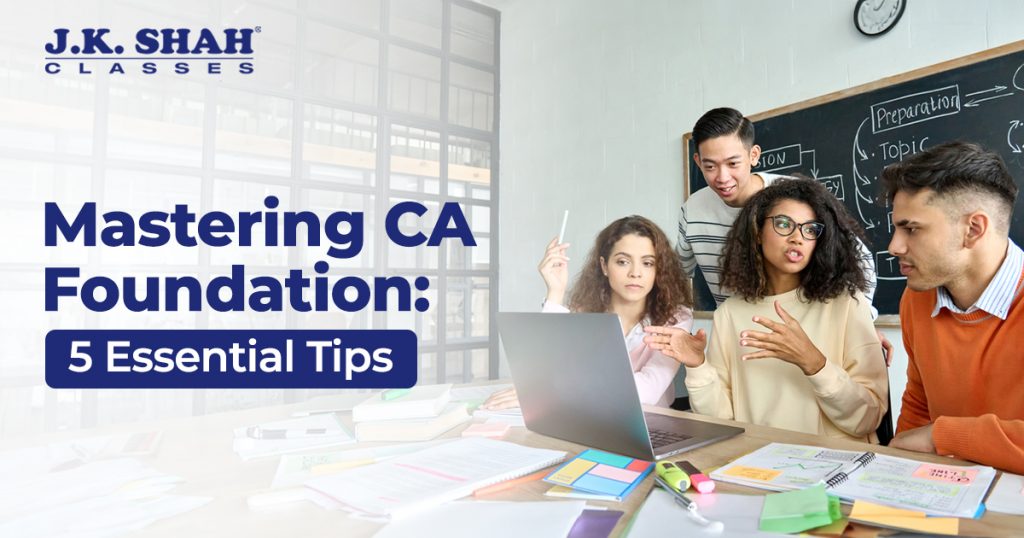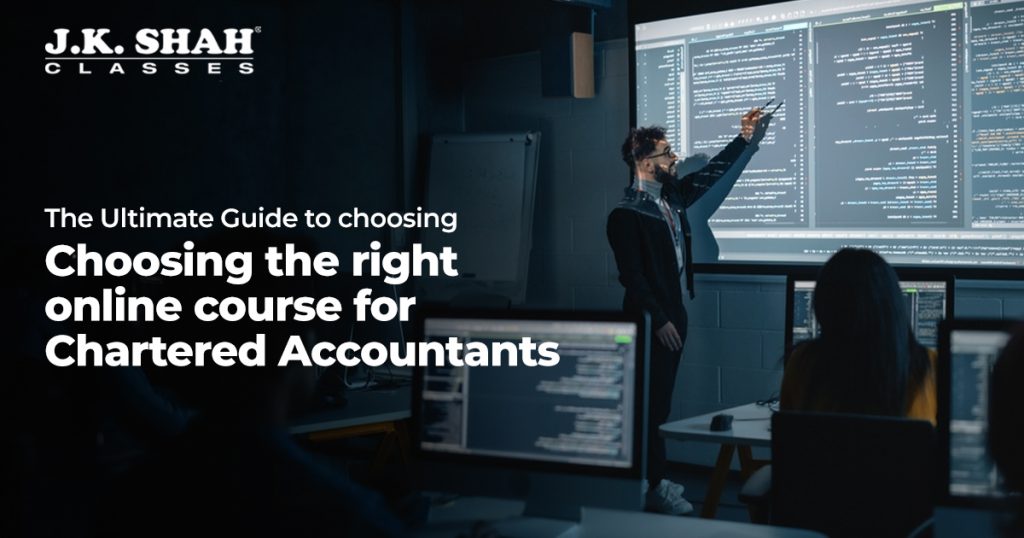
Mastering CA Foundation: 5 Essential Tips Every Student Should Know Foundation Course
5 Success Strategies
Develop a Strategic Plan:
Divide the syllabus into manageable portions. Set a realistic timeline for the CA foundation course exam. Alongside this, allocate sufficient time for each topic based on its weightage and complexity. Next, plan your study approach. Determine which subjects you'll tackle first. Also, plan each topic's study methods (group discussions, mock tests, etc.). Be prepared to adjust your plan as needed based on your progress. Make sure to identify areas that require more focus.
Embrace Consistent and Focused Studying:
It is essential to schedule regular study sessions to avoid cramming the night before the CA foundation classes exam. Make sure your study area is well-lit and has low distractions. Turn off your mobile phones and avoid social media during the study sessions. Also, to maintain focus, engage in active learning methods. Take notes while learning.
Master the Art of Effective Learning:
Ensure a thorough understanding of the fundamental concepts of CA foundation online classes before moving on to complex topics. Regularly solve past exam papers and mock tests to identify your strengths and weaknesses and improve your time management skills. Strive to understand the practical application of theoretical knowledge.
Seek Help and Support When Needed:
Ca foundation online classes provide structured guidance, expert faculty, and opportunities to interact with other students. Discussing concepts with peers can solidify understanding and identify areas requiring clarification. Feel free to seek help from teachers, mentors, or experienced professionals for doubts or complex topics.
Maintain a Positive Attitude and Focus on Well-being:
Set small, achievable goals and reward yourself for reaching them. Develop healthy eating habits like regular exercise to maintain physical and mental well-being. Practise deep breathing or meditation to manage exam anxiety.
CA Intermediate Course Eligibility
1.Clearing the CA Foundation exam. 2. Graduation in any discipline with specified percentage criteria.
CA Foundation Course Eligibility
1. Completion of Class 12 from a
recognized school.
2. A minimum of 50% aggregate marks in Class 12
Direct Entry to CA Intermediate
1.Completion of graduation in Commerce with 55% or other streams with 60%. 2. Completion of four weeks Integrated Course on Information Technology and Soft Skills (ICITSS) before commencing articles
CA Final Course Eligibility
1.Clearing both groups of the CA Intermediate course exam. 2. Completion of three years of articleship training.
General Eligibility
- There is no age limit for applying for the CA course.
- The CA course is open to students from all streams; however, a background in Commerce is beneficial.
CA Course Fees
- CA Foundation course fee is approximately INR 9,800.
- CA Intermediate course fee for both groups is around INR 18,000.
- CA Final course fee varies for each group; Group 1 is about INR 13,000, and Group 2 is approximately INR 22,000.
- al.
Salary Expectations
- The starting salary for chartered accountants ranges from INR 7 LPA to 10 LPA.
- With experience, salaries can increase significantly, with senior CAs earning up to INR 50 LPA.
Job Sectors
- Auditing
- Finance sector
- Taxation Advisory sector
- Treasury function
- Public sector banks
CA Syllabus
Paper-1: Principles and Practice of Accounting
- Fundamental accounting concepts and principles
- Preparation of financial statements
- Understanding of accounting policies and accounting standards
Paper-2: Business Laws and Business Correspondence and Reporting
- A comprehensive study of business laws
- Developing reporting skills and drafting business correspondence
Paper-3: Business Mathematics, Logical Reasoning and Statistics
- Business Mathematics: Ratio, proportion, indices, logarithms
- Logical Reasoning: Number series, coding and decoding, direction tests
- Statistics: Statistical description of data, probability, theoretical distributions
Paper-4: Business Economics and Business and Commercial Knowledge
- Basic Concepts of Business Economics
- Business and Commercial Knowledge, including an understanding of common business terminologies
This syllabus is designed to test the basic knowledge required of CA aspirants and prepare them for the professional level of the CA curriculum. The syllabus is subject to updates, so it is advisable to check the latest details from the official ICAI website or trusted educational resources.
Conclusion
Incorporating these valuable tips into your study plan will enable you to tackle the CA Foundation exam. Remember, consistent effort, the right approach, and a positive attitude are critical for success. So, implement these tips and prepare to excel in the CA Foundation exam!
Recent Post
Contact Us
Related Post
Location
- J. K. Shah Classes, Shraddha, 4th Floor, Near Chinai College, Old Nagardas Road, Andheri East, Mumbai - 400069










